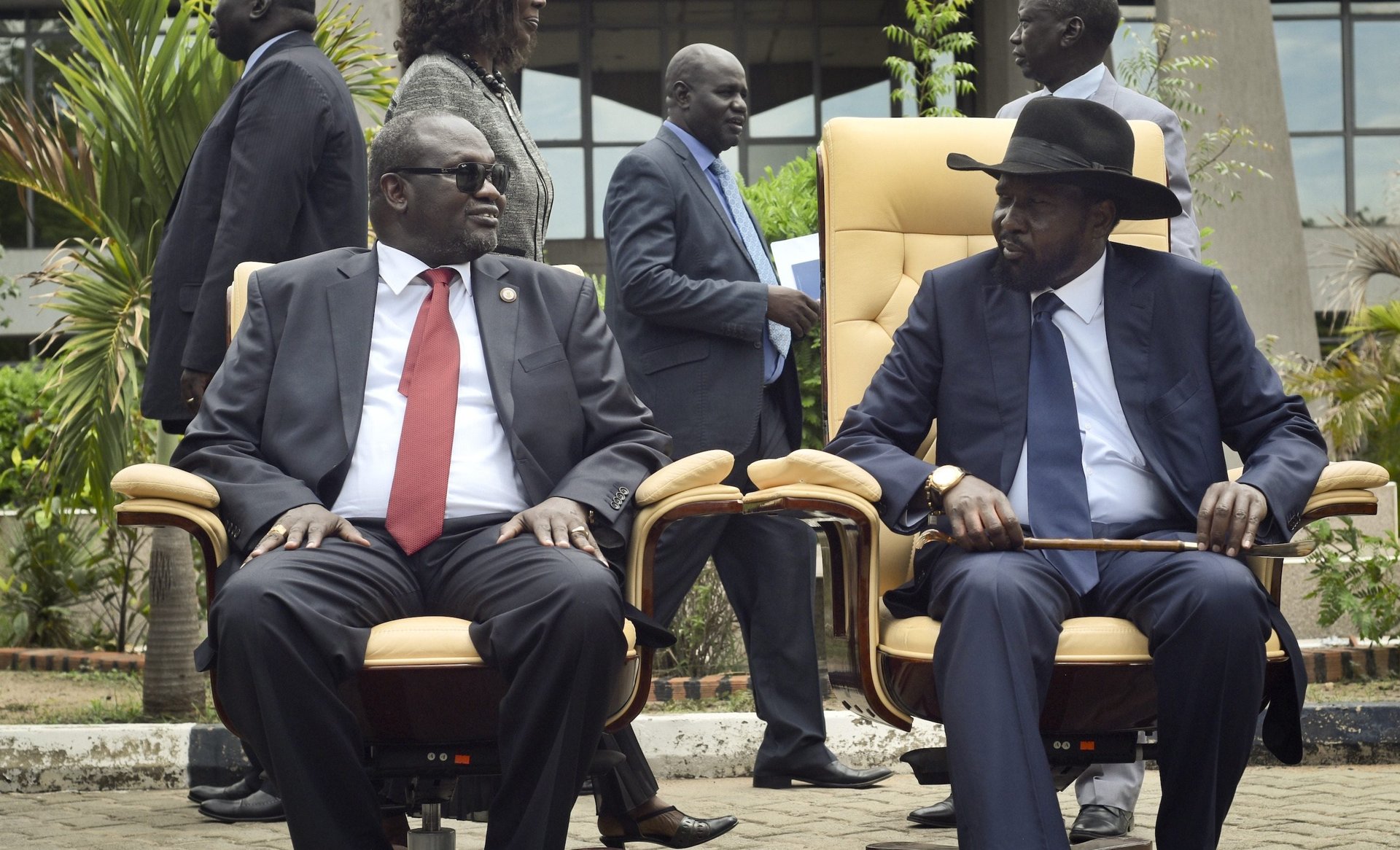The US wants Kenya to crack down on illegal investments by South Sudan’s elite
The US is promising to investigate and prosecute South Sudanese officials involved in money laundering and plundering national assets.


The US is promising to investigate and prosecute South Sudanese officials involved in money laundering and plundering national assets.
During a trip to Nairobi on yesterday (June 13), Sigal Mandelker, the US Treasury’s undersecretary for terrorism and financial intelligence, urged Kenyan officials to help with the financial probes, including those targeting South Sudan president Salva Kiir and his former deputy Riek Machar. Mandelker said South Sudanese individuals on the US sanctions list continue to invest in Kenya’s real estate.
“We will impose consequences, we will cut off your access to the US financial system, and we will work with our partners in this region and elsewhere to do the same,” Mandelker warned.
Since late 2013, the brutal conflict in South Sudan has claimed tens of thousands of lives and driven nearly four million people from their homes. And as violence engulfed the entire nation and ceasefire agreements fell apart, top leaders, their families, and business partners have been accused of amassing illegal wealth and acquiring assets in neighboring nations.
Kenya represents a key entry point into the international financial system for South Sudan. Along with Uganda, it remains a preferred destination to stash assets. Kenya’s mature, and somewhat resilient, real-estate sector draws both regional and international investors and is an attractive location for second homes among ultra-rich Africans.
The power struggle between ethnic Dinka supporters of Kiir and ethnic Nuer supporters of Machar is also linked to the corruption and battles to control the nation’s natural resources. Documents obtained in 2016 by The Sentry, the US-based watchdog organization co-founded by actor George Clooney, have shown how associates of both leaders have accumulated vast commercial interests and real-estate holdings. This year, the group also found payment logs from state oil operator Nilepet suggesting that cash from the company had been used to fund fighters in the civil war.
As the war and profiteering drag on, many South Sudanese hope for any deal that would bring an end to Africa’s largest refugee crisis since the 1994 Rwanda genocide. That could become a reality next week, as both Kiir and Machar are expected to meet in Addis Ababa for the first time in almost two years.